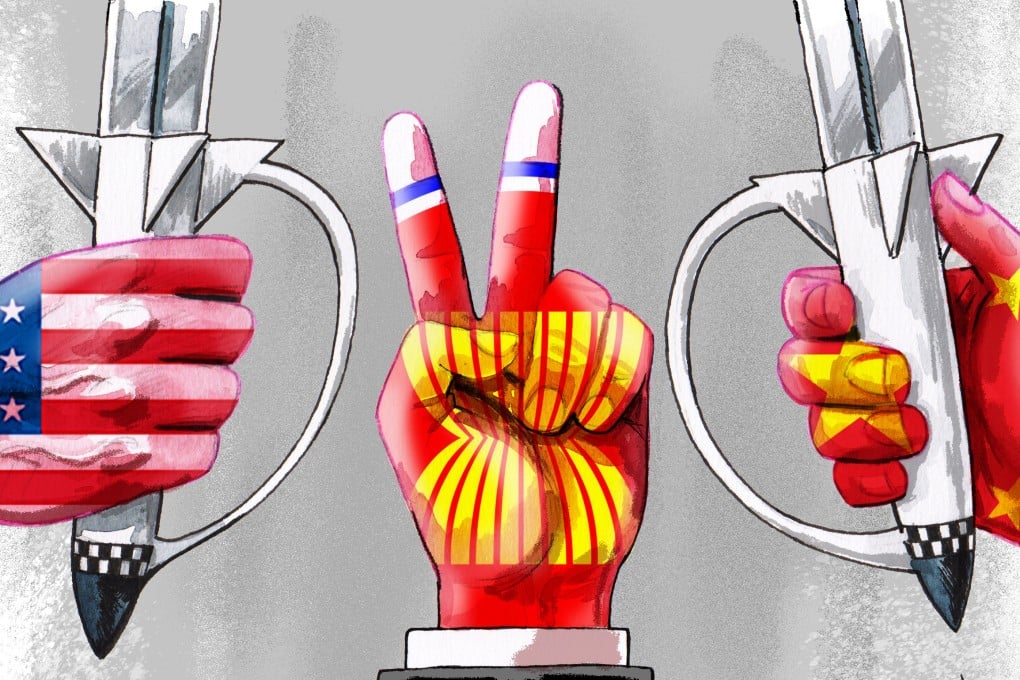Advertisement
Opinion | Asean must choose peace to keep US-China tensions from spilling over into war
- Though reluctant to choose sides, Asean must preserve its centrality and Indonesia’s leadership will be important
- With like-minded counterparts, the bloc can regalvanise the non-aligned movement into a consequential third force, espousing conciliation to mitigate US-China rivalry
Reading Time:4 minutes
Why you can trust SCMP
17

The US and China are edging closer towards a dangerous showdown. Asean and its like-minded counterparts must take the side of peace to save the world from the unthinkable consequences of such a war.
Following US House Speaker Nancy Pelosi’s controversial Taiwan trip in early August, six other American delegations have visited the island, aggravating the delicate cross-strait dynamics. Singapore Deputy Prime Minister Lawrence Wong has warned that America and China may “sleepwalk into conflict” if they do not de-escalate tensions over Taiwan.
For Southeast Asians, the deterioration in US-China relations is worrisome; foremost at stake is the principle of centrality for the Association of Southeast Asian Nations.
Advertisement
The Aukus alliance, for instance, is seen as undermining Southeast Asians’ determination to shape their own destinies. There is growing concern that territorial disputes in the South China Sea may be exploited by extra-regional powers to wage a proxy war, reducing Asean to a mere pawn on someone else’s geopolitical chessboard.
That is a fate that may have befallen Taiwan. The island’s future and how Taipei should negotiate with Beijing is likely to be dictated by Washington from now on. And, to save their country, Ukrainians are also fighting someone else’s battle, namely Nato’s campaign to contain Russia. If and when the Ukraine war ends is, in all likelihood, contingent on decisions made in Washington and Moscow.
According to ancient Malay folklore, an astute ruler must move with the agility of a mouse deer to keep bigger foes at bay. Southeast Asians need similar dexterity, and neutrality is key to safeguarding Asean’s centrality. To preserve self-rule, Asean members cannot afford to lean too heavily on any side.
Advertisement
Select Voice
Select Speed
1.00x
